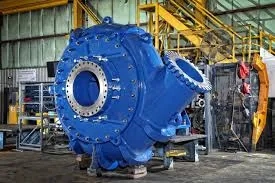Maori
- Afrikaans
- Albanian
- Amharic
- Arabic
- Armenian
- Azerbaijani
- Basque
- Belarusian
- Bengali
- Bosnian
- Bulgarian
- Catalan
- Cebuano
- Corsican
- Croatian
- Czech
- Danish
- Dutch
- English
- Esperanto
- Estonian
- Finnish
- French
- Frisian
- Galician
- Georgian
- German
- Greek
- Gujarati
- Haitian Creole
- hausa
- hawaiian
- Hebrew
- Hindi
- Miao
- Hungarian
- Icelandic
- igbo
- Indonesian
- irish
- Italian
- Japanese
- Javanese
- Kannada
- kazakh
- Khmer
- Rwandese
- Korean
- Kurdish
- Kyrgyz
- Lao
- Latin
- Latvian
- Lithuanian
- Luxembourgish
- Macedonian
- Malgashi
- Malay
- Malayalam
- Maltese
- Maori
- Marathi
- Mongolian
- Myanmar
- Nepali
- Norwegian
- Norwegian
- Occitan
- Pashto
- Persian
- Polish
- Portuguese
- Punjabi
- Romanian
- Russian
- Samoan
- Scottish Gaelic
- Serbian
- Sesotho
- Shona
- Sindhi
- Sinhala
- Slovak
- Slovenian
- Somali
- Spanish
- Sundanese
- Swahili
- Swedish
- Tagalog
- Tajik
- Tamil
- Tatar
- Telugu
- Thai
- Turkish
- Turkmen
- Ukrainian
- Urdu
- Uighur
- Uzbek
- Vietnamese
- Welsh
- Bantu
- Yiddish
- Yoruba
- Zulu
Telephone: +86 13120555503
Email: frank@cypump.com
Nov . 22, 2024 18:23 Back to list
sump pump sewer
Understanding Sump Pumps and Their Role in Sewer Systems
In residential and commercial properties, managing water effectively is crucial, especially in areas prone to flooding or significant rainfall. One essential device that assists in achieving this goal is the sump pump. While often associated with basement waterproofing, sump pumps also play a significant role in sewer systems, ensuring the effective removal of water and reducing the risk of water damage.
What is a Sump Pump?
A sump pump is a submersible pump installed in a pit, known as a sump, found in the basement or below ground level of a building. Its primary function is to prevent the accumulation of water from flooding or heavy rains. The pump activates automatically when the water level in the sump pit rises to a predetermined level, effectively removing excess water from the area.
How Sump Pumps Work
Sump pumps are equipped with a float switch that triggers the pump once water reaches a certain height. Upon activation, the pump pushes the water out of the sump pit through a discharge pipe, directing it away from the foundation of the structure. This process not only helps in managing groundwater but also works in conjunction with the sewer system in certain situations.
In cases where the local sewer system is overloaded or when properties are situated in low-lying areas, sump pumps can prevent sewage backups. When the sewer system is unable to handle additional water from storm drains, sewage can flow back into homes, leading to serious contamination and damage. Sump pumps provide an additional layer of protection, keeping basements dry and equipment safe.
The Importance of Sump Pumps in Sewer Systems
Sump pumps enhance the efficiency of sewer systems by handling excess water that may overwhelm municipal systems. During heavy rainstorms, sewer systems can be inundated, resulting in potential blockages or backups. By using sump pumps, homeowners can manage additional water influxes more effectively and prevent sewer systems from reaching their capacity.
Moreover, in areas without a direct connection to a municipal sewer, sump pumps can discharge wastewater away from the property to a designated drainage area. This is particularly important in rural areas or regions with inadequate drainage systems. The proper management of wastewater ensures environmental protection and minimizes the risk of flooding.
sump pump sewer

Types of Sump Pumps
There are generally two types of sump pumps pedestal pumps and submersible pumps.
1. Pedestal Pumps These pumps have the motor mounted above the sump pit, minimizing the risk of electrical failure in case of flooding. They work effectively for smaller basements and are relatively easy to maintain.
2. Submersible Pumps These pumps sit directly in the water within the sump pit. They are designed to operate while submerged and are typically more efficient and quieter than pedestal pumps. Submersible models are suitable for larger spaces and can handle larger volumes of water.
Maintenance and Considerations
Regular maintenance of sump pumps is crucial to ensure their functionality when needed. Homeowners should routinely check the pump for debris, ensure the float switch operates correctly, and verify that the discharge pipe is unobstructed. Additionally, investing in a backup system can provide peace of mind during power outages or pump failures.
It is also essential to understand local plumbing codes and regulations concerning sump pumps and sewer connections. In some areas, improper discharge of sump pump water directly into the sewer system may be prohibited. Therefore, homeowners must ensure compliance with local legislation to avoid penalties.
Conclusion
In conclusion, sump pumps are an integral part of effective water management systems in homes, reducing the risk of water damage and enhancing the functionality of sewer systems. By understanding their operation, types, and maintenance requirements, property owners can better protect their investments and ensure a safe and dry environment. Whether combating basement flooding or managing wastewater, a sump pump is a vital tool that every property owner should consider for their home.
-
ISG Series Vertical Pipeline Pump- Chi Yuan Pumps Co., LTD.|High Efficiency&Compact Design
NewsAug.02,2025
-
Heavy-Duty Mining Sludge Pumps - Wear-Resistant Slurry Handling
NewsAug.02,2025
-
Horizontal Split Case Pump with GPT-4 Turbo | High Efficiency
NewsAug.01,2025
-
ISG Series Pipeline Pump - Chi Yuan Pumps | High Efficiency, Durable Design
NewsAug.01,2025
-
Advanced Flue Gas Desulfurization Pump with GPT-4 Turbo | Durable & Efficient
NewsJul.31,2025
-
ISG Series Vertical Pipeline Pump - Chi Yuan Pumps | Advanced Hydraulic Design&Durable Construction
NewsJul.31,2025










